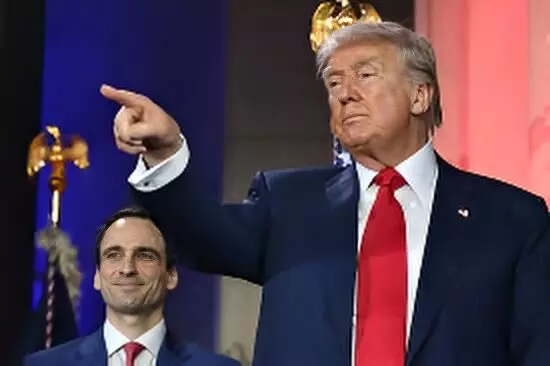Donald Trump Warns States: “China Will Overtake Us in AI if We Don’t Act Together”
Donald Trump urges Congress to adopt a unified federal AI regulation standard, warning that fragmented state laws could help China surpass the US in the global AI race. Here’s why lawmakers are divided.
US President Donald Trump warns that fragmented state-level AI regulations could help China overtake the United States in the global AI race.

US President Donald Trump has urged Congress to implement a unified federal framework for artificial intelligence regulation, warning that fragmented state-level laws could weaken America’s competitive edge against China. Trump insisted that inconsistent rules across 50 states risk slowing innovation and creating hurdles for companies racing to lead in AI.
Truth Social' postings, Trump said that restrictions imposed by the states, which he termed excessive, are killing the economic growth that is driven by AI and added, "If we don't come together, China will very easily catch us in the AI race." The ex-president asked the lawmakers to bundle the federal AI standard with the National Defense Authorization Act and have it either passed as a stand-alone bill or incorporated into the NDAA.
Bipartisan Pushback Against Federal Override
The proposal comes at a time when House Majority Leader Steve Scalise is contemplating resuscitating a rule that had already been rejected and would prohibit states from enacting their own AI regulations. The proposal fell through earlier in the year when it received a unanimous 99 votes against it during budget discussions.
Resistance is still quite strong. Republican senators Marsha Blackburn and Josh Hawley have spoken for state-controlled child protection laws while Florida's governor Ron DeSantis has charged the federal government with encroachment. Already several states like California have their own laws regarding AI that call for security disclosures, copyright protections, and children's safety measures.
Innovation vs. Regulation: The National Debate Intensifies
Major tech companies and trade groups such as NetChoice argue that navigating 50 different regulatory frameworks slows innovation and hands China a major strategic advantage. Industry leaders—including Nvidia CEO Jensen Huang—have emphasized that China’s unified AI regulatory model gives its companies a cleaner runway to scale.
However, critics fear that broad federal preemption could nullify essential protections, including child online safety laws and copyright rules. The broader debate highlights the challenge of balancing rapid AI development with safeguards against misinformation, job displacement, and national security threats.
Congress faces a tight December deadline to finalize the defense bill, with clarity on proposed AI regulation expected before Thanksgiving.

